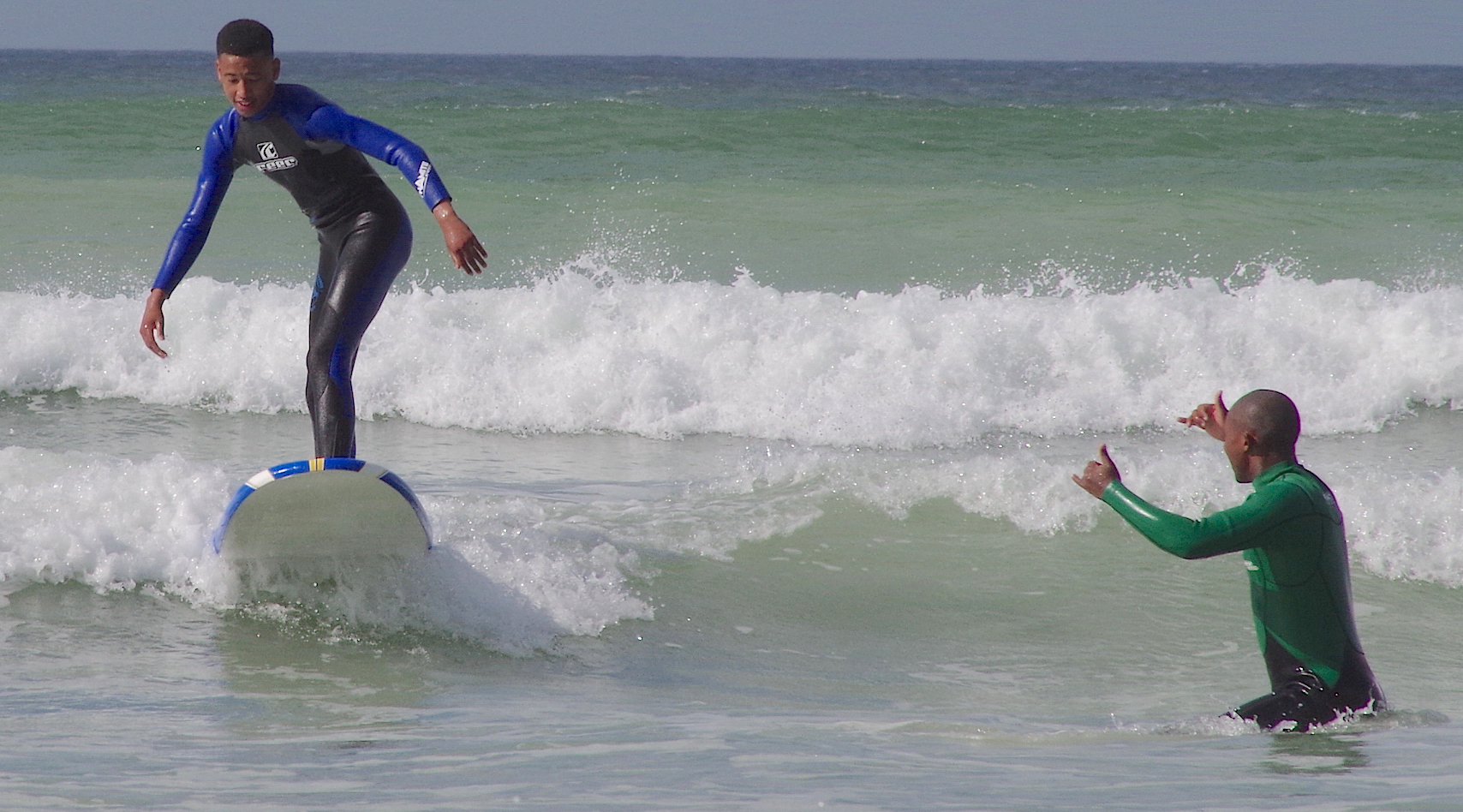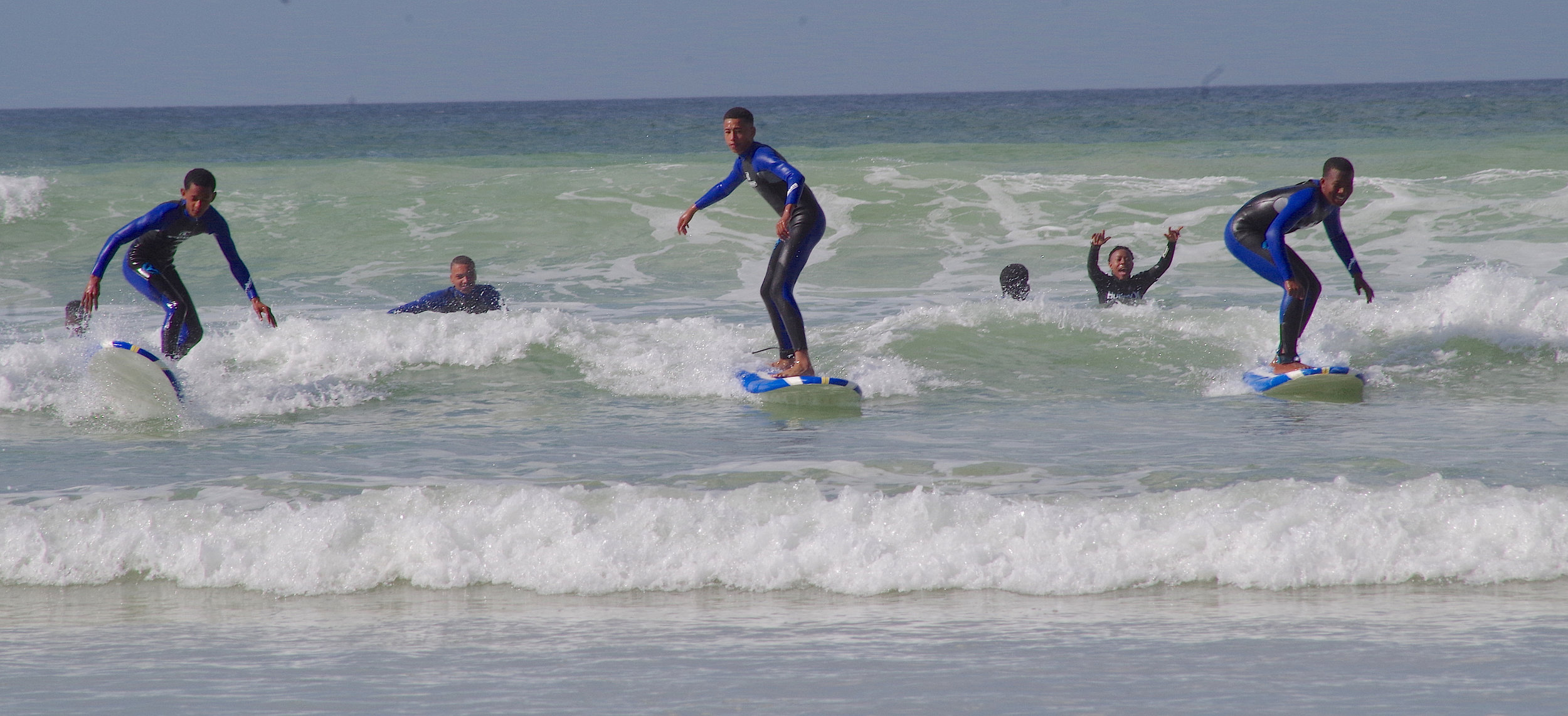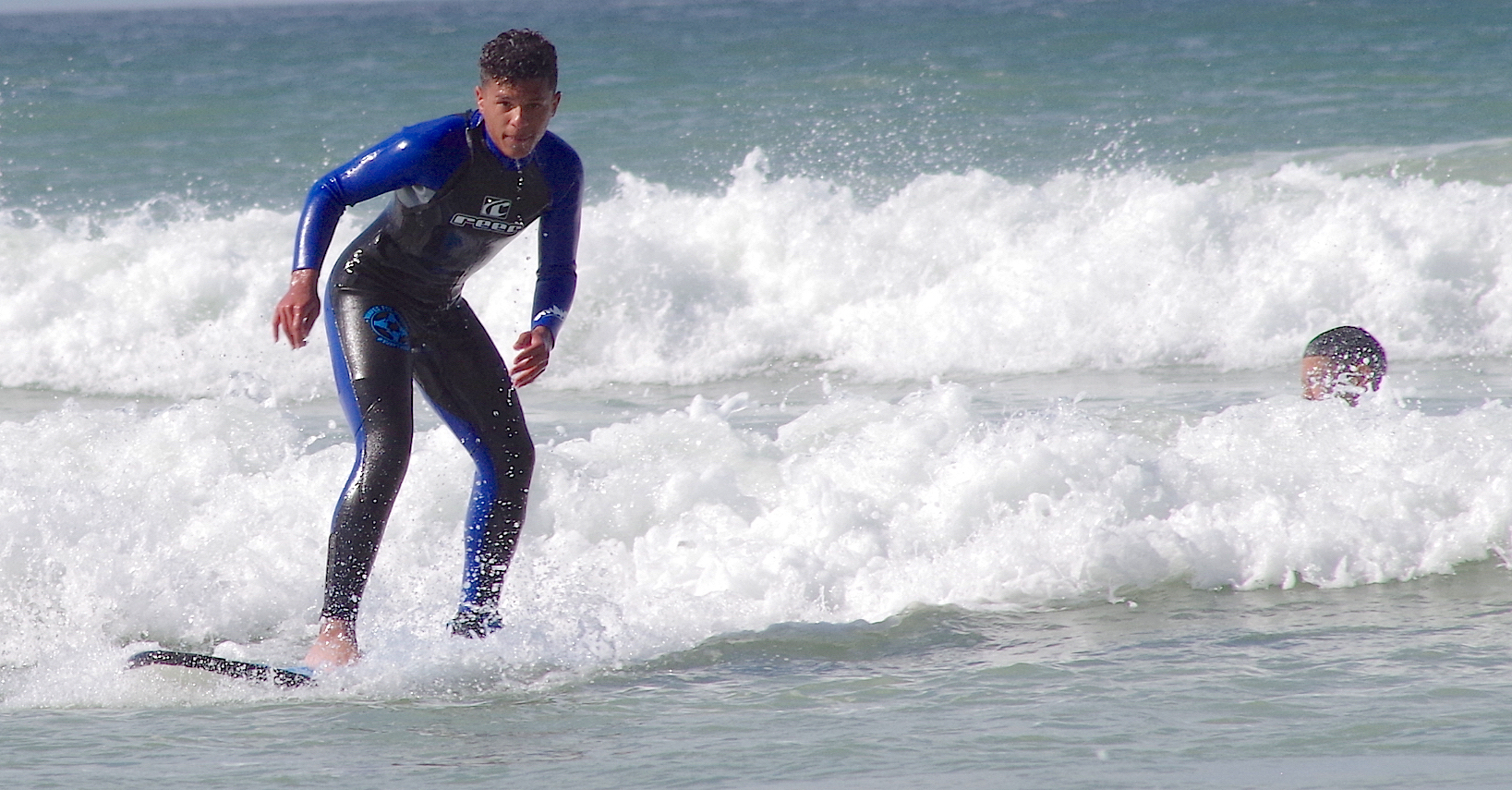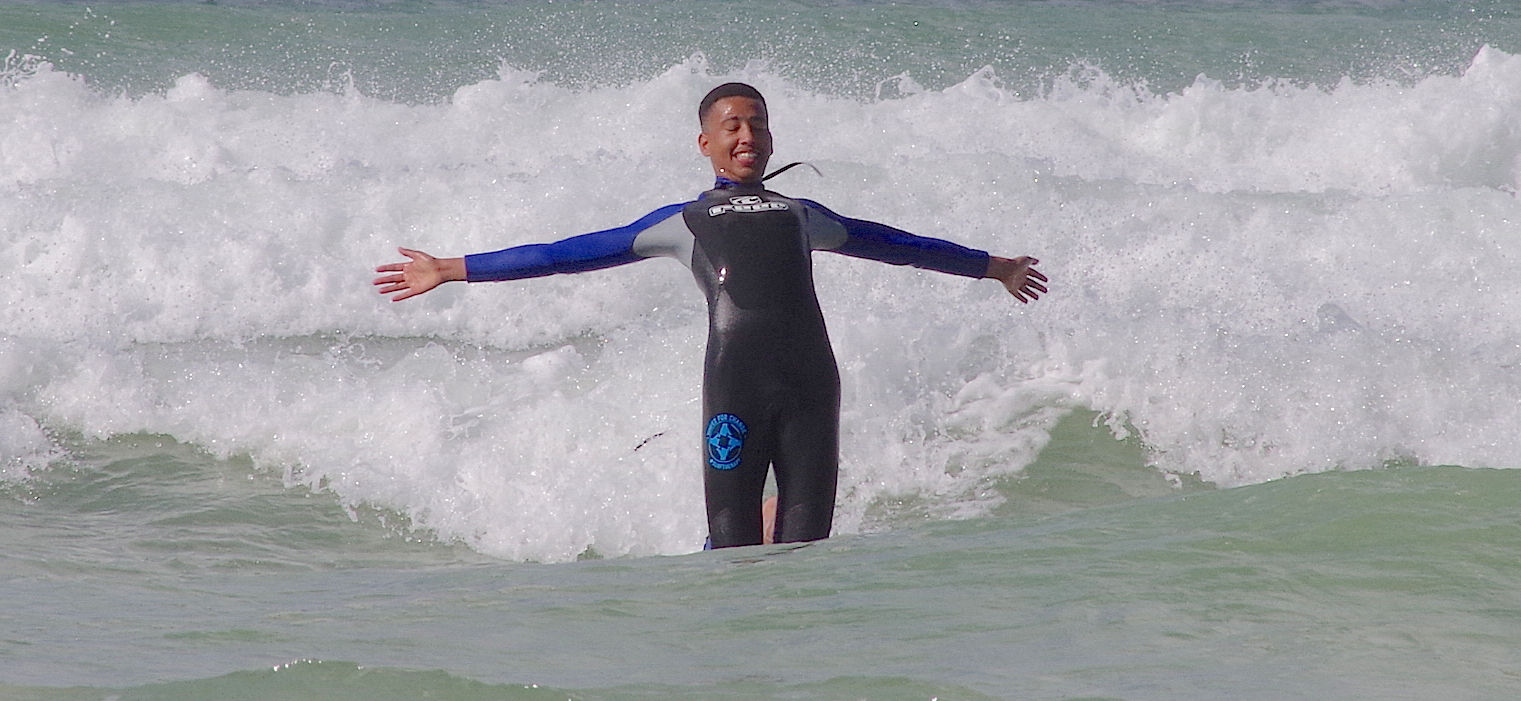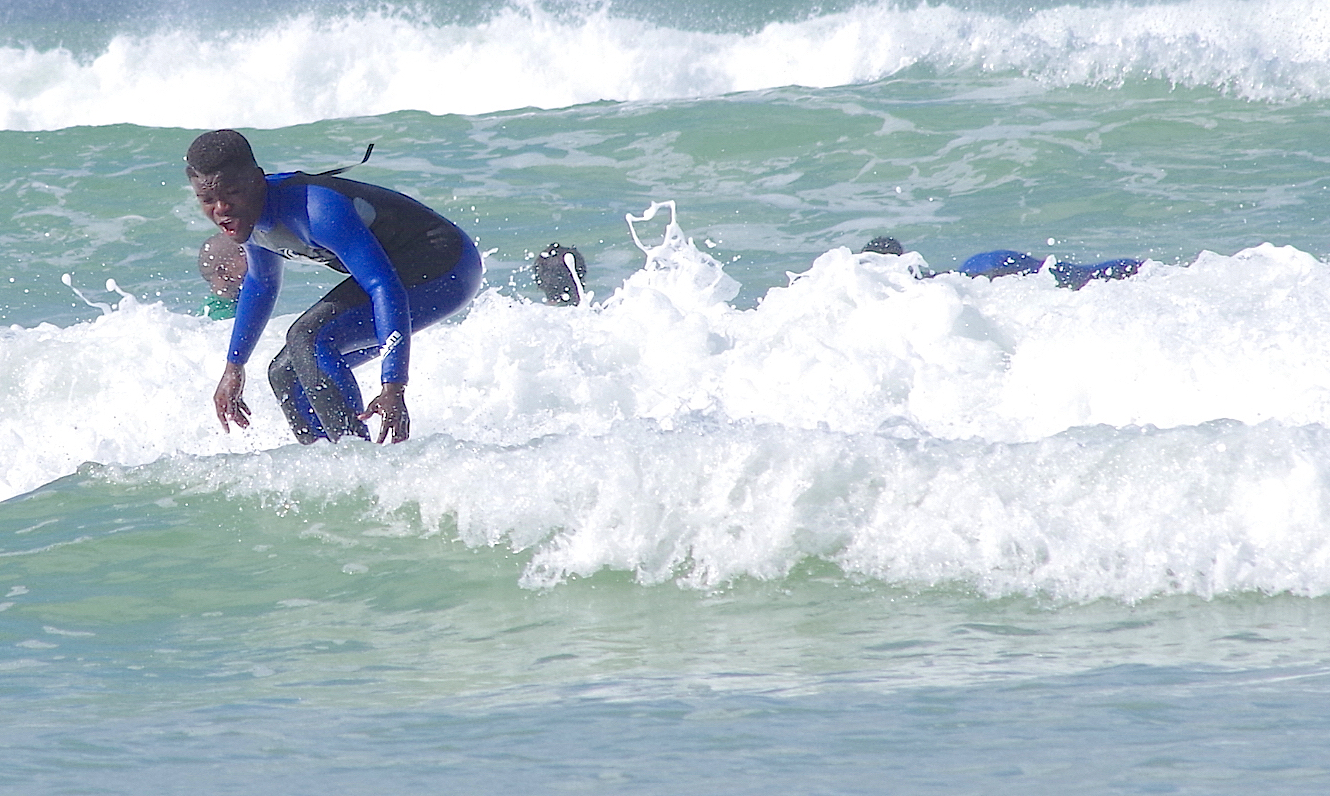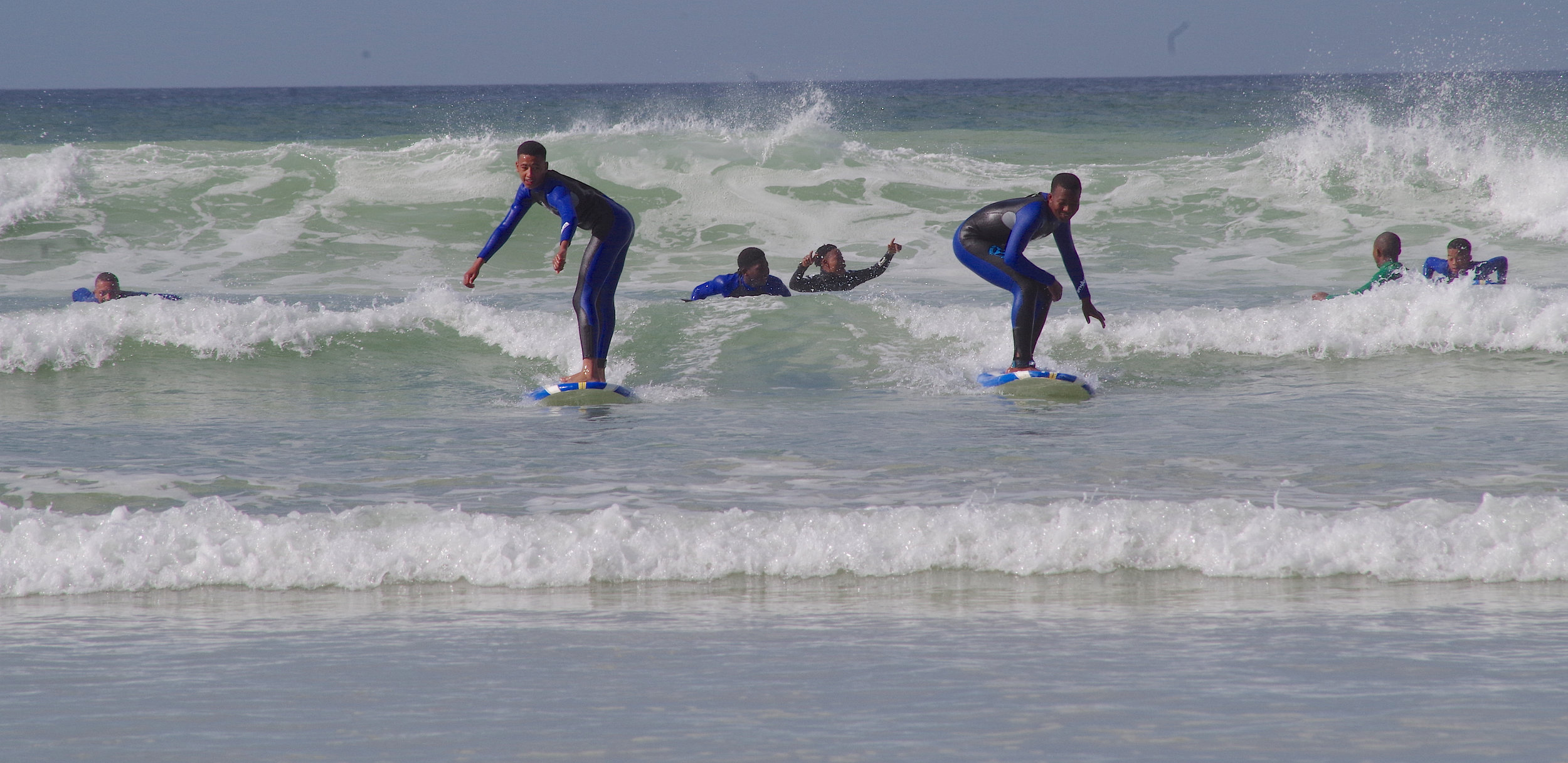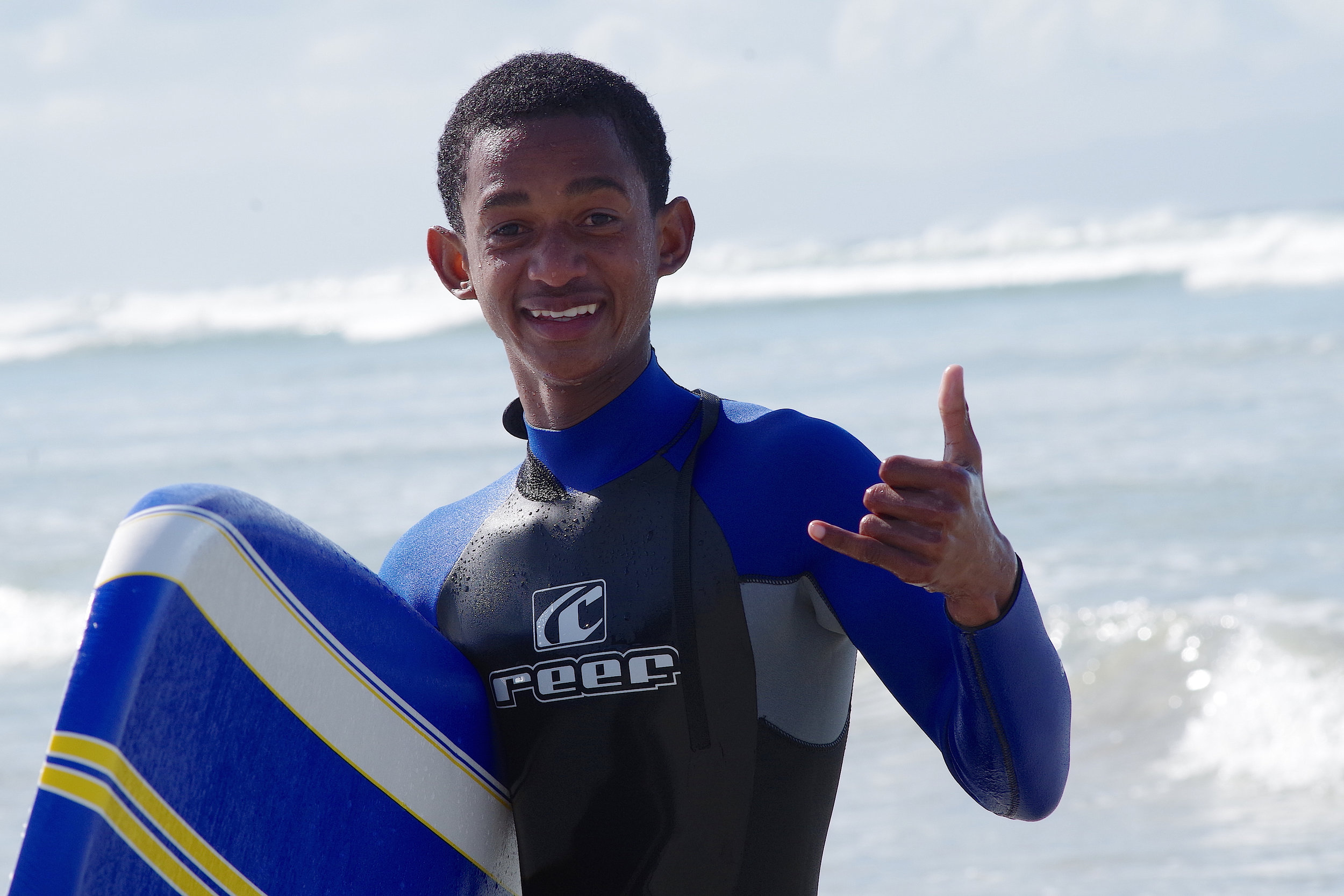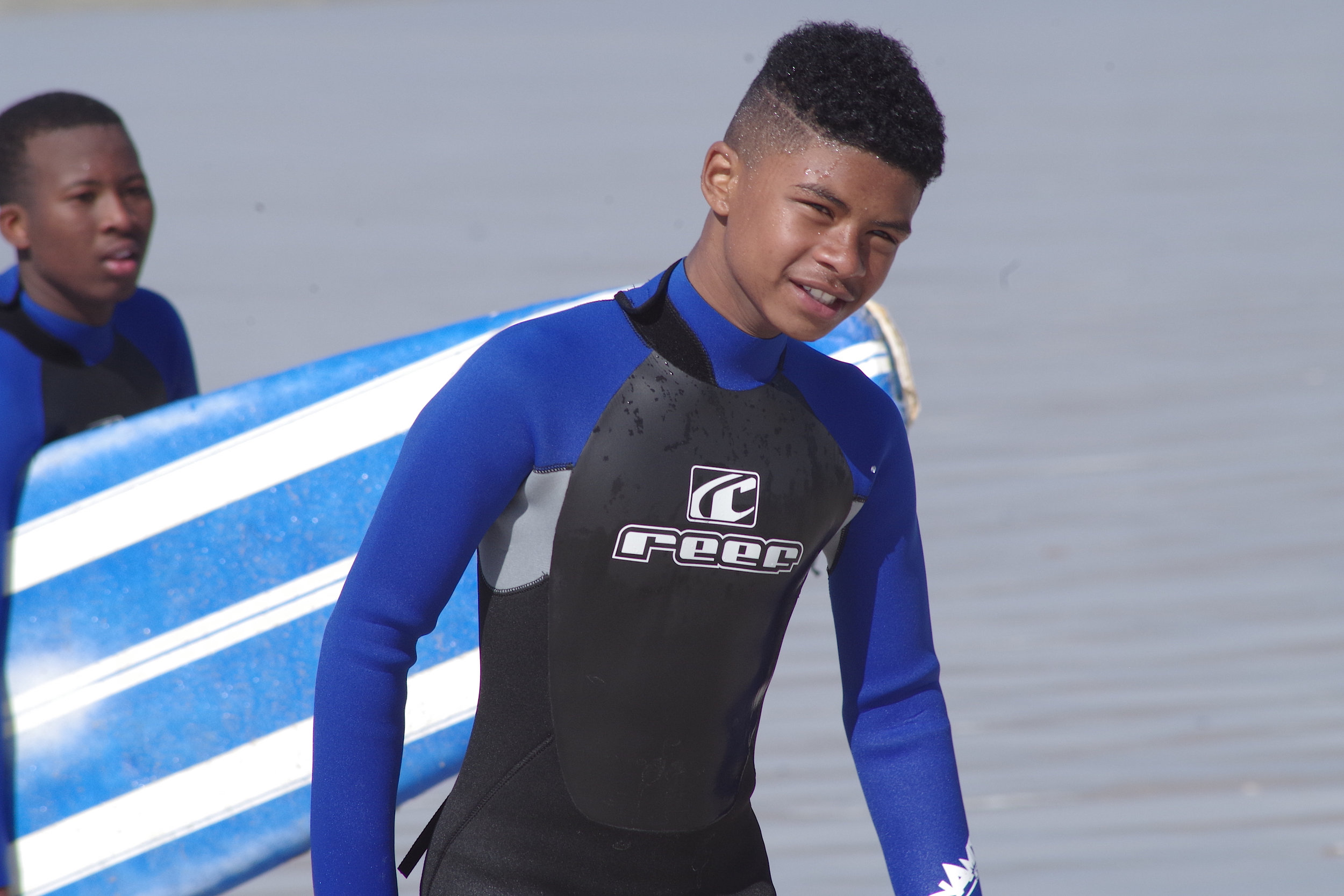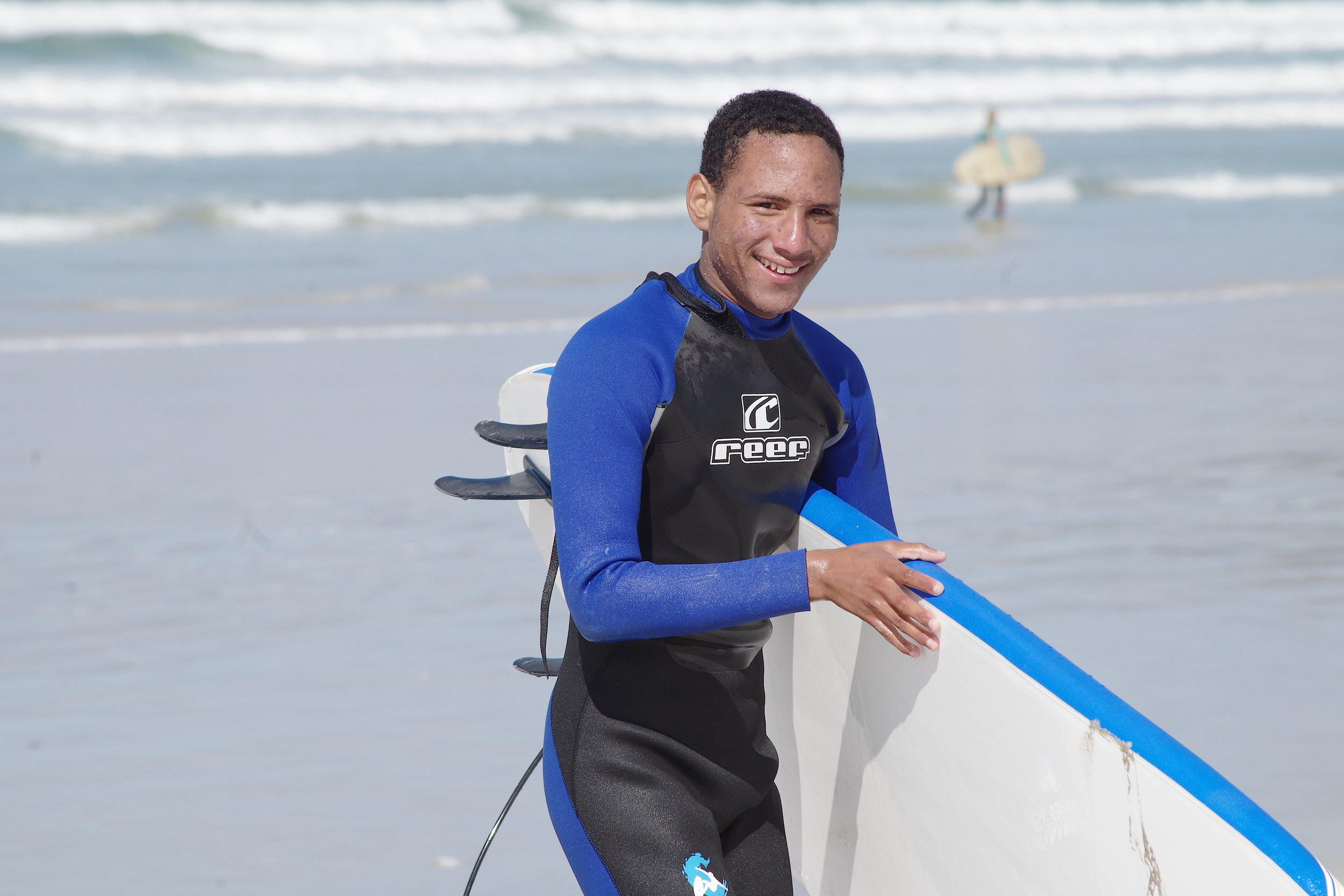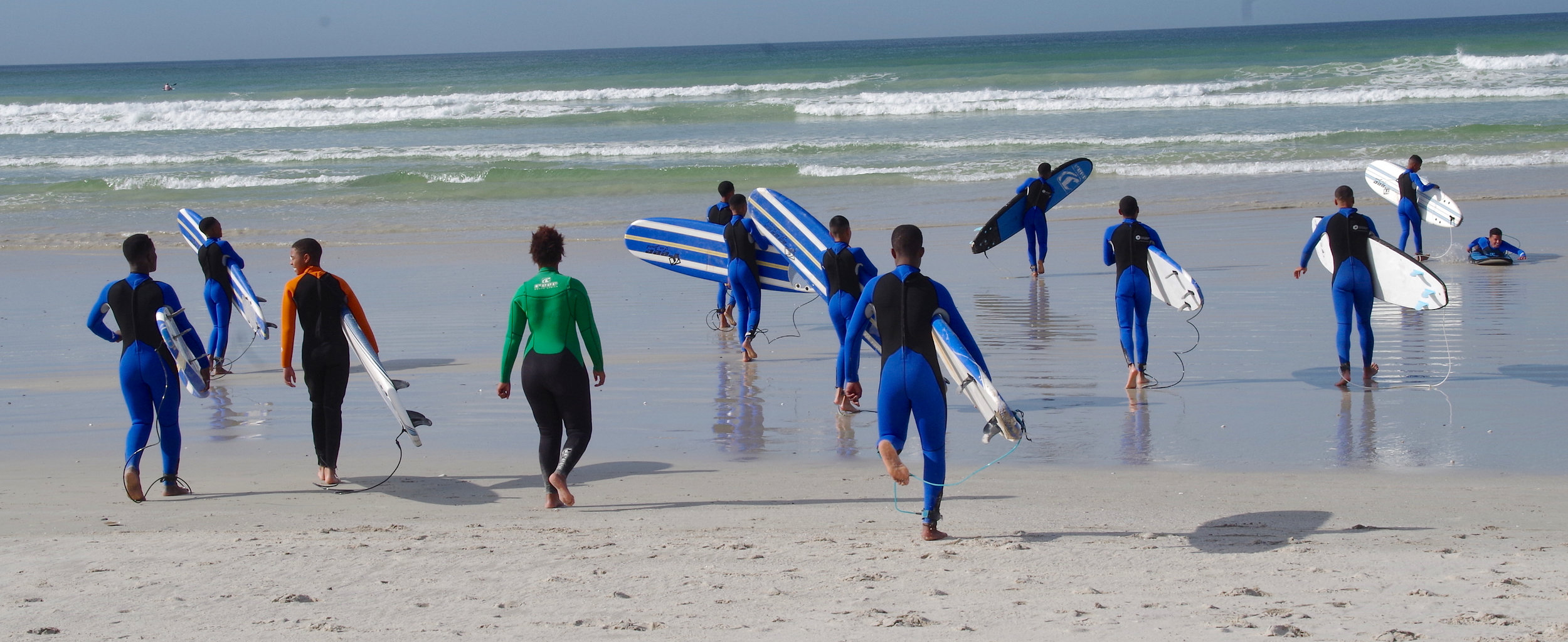School dropouts, gang members... how about surfers?

The UK is currently grappling with an unprecedented wave of murders, driven by gun and knife violence, which took the lives of 4 teenagers last week alone. But how does that compare to Cape Town's 2000 murders (2015), an average of 6 a day? While the British government is once again pretending to look into the issue by blaming the youth for being under the influence of social media and rap music, communities across South Africa are supporting their own children through local initiatives. We met up with Waves for Change in Cape Town, as they are trialing a program to support boys most at risk of being offenders or victims of street crime.
Waves for Change is strategically based in Muizenberg, a seaside town currently experiencing massive gentrification. It borders the Cape Flats, apartheid's "dumping ground" after all non-whites were forcibly relocated out of Cape Town's centre. With structural poverty and mass rural immigration, townships like Khayelitsha and Gugulethu are struggling to look after their young: in the Western cape, one third of under 25s are not in education, employment or training, 60% are born from single mothers and 26% grew up in child-headed households.
In the absence of role models, kids and boys in particular turn to the streets for support. And the streets are awash with guns: in Cape Town, criminologists agree this is courtesy of one single corrupt white cop who peddled over 2,400 guns over the course of 8 years. Unsurprisingly, Waves for Change report that 59% of kids on their program have witnessed someone being shot.
When the odds are stacking up against you, how do you resist the tide? How do you assert your masculinity?
Waves for Change replaces what young boys seek in gang life: affirmation, discipline and ritual, respect from peers and a significant adult. It recently started work with a group of boys who have just fallen out of the education system and is getting involved in street crime.
While Waves for Change Site Manager Liesel gives me an overview of the challenges and specific personal history on some of the boys, I struggle to see in them what she is describing: the hardship, the families they have to support at a young age, the violence they experience or enact. She is talking of crime and violence, which conjures images of hard-faced teens behaving erratically and threateningly. Yet all I can see are young boys desperate for validation, avidly and obediently listening to technical advice, practicing relentlessly, showing the greatest respect and camaraderie for their female instructors, shamelessly enjoying pure stoke and goof, knee-boarding or sandwich-boarding their mates in the surf, yet proudly and awkwardly performing for the camera, 'surfing big' for posterity.
Bearing in mind some of them only just learnt to swim, It is hard to believe they are so comfortable in the water, let alone able to ride after only a handful of sessions. But on second thought, I am not surprised: 'all' Waves for Change does is build on the resilience that children have already displayed at home and in the streets. That's all it does, but it means the world: a lifetime love for the ocean, self-esteem, solid points of reference for the future, lives turned around. Most importantly, the immediacy of change is freedom from stigma: because now, they are not the poor, the down-trodden, the good-for-nothings, the small-time criminals. They are: SURFERS.
Support Waves for Change now!
Chief Storyteller at Swellbound
